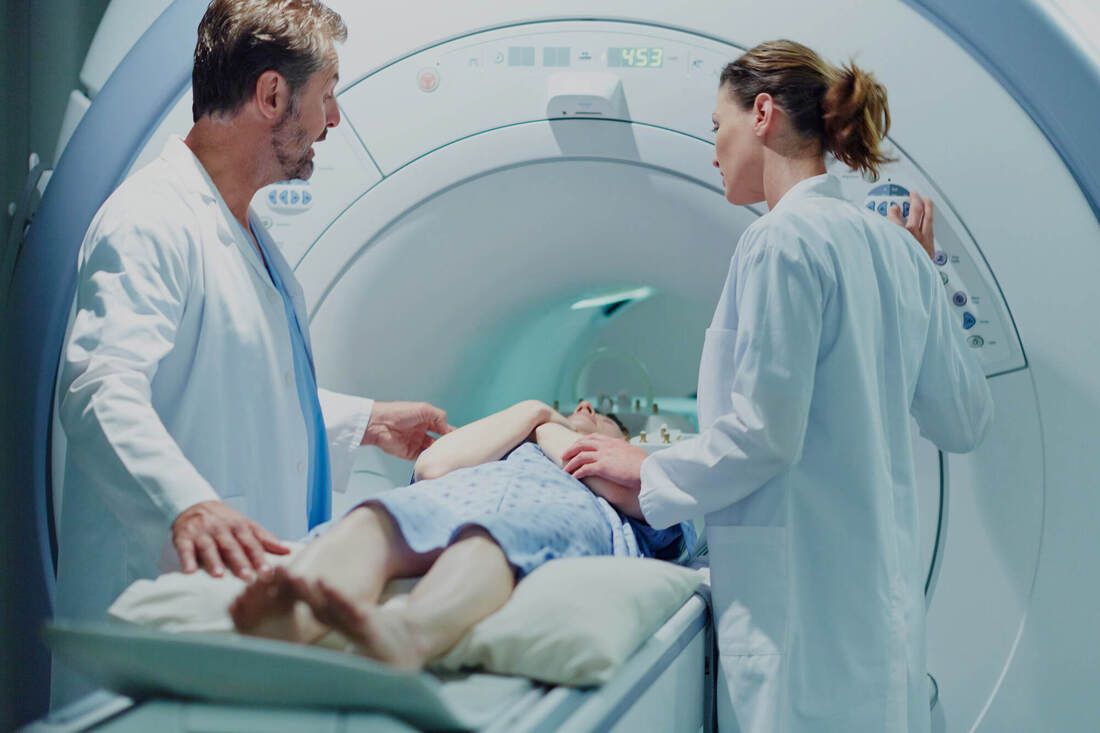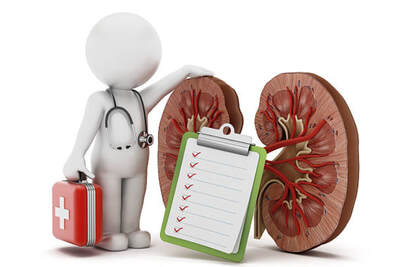What happens right before my HeartMRI?
|
You will be going through the screening process to ensure there is no unknown metal in your body. You may be asked to change into a hospital gown. For example: If you wear a bra with underwire, you may be asked to remove it before the scan.
If you’re receiving contrast for the scan and/or undergoing a stress test, you will have an IV placed. You may also have blood work performed prior to your scan. Once the preparations are complete, you will be brought into the MRI scan room where the MRI machine sits. |
Who will be performing my HeartMRI?
|
HeartMRI is a very specific test that requires specially trained MRI technologists or radiographers to perform. If you are undergoing a stress HeartMRI, there will be nurses present during the test to administer the stress medications and monitor you during the test. A physician is available to answer any questions that the technologist may have regarding the scan.
|
What happens during my HeartMRI?
|
You will lie down on the MRI scanner table, and ECG electrodes will be placed on you so that your heart beat can be tracked for the scan. You may also have blood pressure cuff and blood oxygen monitor hooked on. Next, a chest coil will be placed on top of you. This is to receive the signal for the MRI itself to create the images of your heart. You will have headphones placed over your ears to protect them from the noise made by the scanner during imaging, as well as play music/podcast, and give you instructions while you’re in the scanner. You’ll also be given an emergency squeeze bulb in case you need to communicate with the technologist who is performing the scan outside of the MRI scan room. Once set, your whole body will then be slide into position inside the scanner for the imaging.
|
During the scan, loud banging noises will occur prior to and during the imaging. Since the heart moves up and down when you breathe, you will be given breath hold instructions to keep your heart still during imaging. The typical instruction can be: “breathe in, breathe out, and hold your breath”. These breath holds can last several seconds up to 20 seconds at a time. Your ability to hold your breath can greatly affect the image quality. Some parts of the imaging may not require any breath hold, and thus you may not have those instructions all the time.
Depending on the type of HeartMRI your physician orders, you may receive contrast through an IV. This contrast helps assess for scar in the heart, determine how well your heart is getting blood flow during a stress test or to have an enhanced view of the large blood vessels in your body. |
If I am allergic to computed tomorgraphy (CT) contrast, can I have a HeartMRI?
The contrast used for CT and heart catheterization is iodinated contrast, which is different from the gadolinium-based contrast agents used in MRI. Please discuss with your physician regarding any prior allergies before undergoing a HeartMRI.
I have a kidney problem, can I still receive HeartMRI contrast?
|
This can vary depending on the type of MRI contrast is used, the severity of the kidney problem, as well as policies between different imaging centers. Please let the imaging center know prior to your scan to determine if this is the right test for you. Unlike CT contrast, the MRI contrast does not cause damage to the kidneys. However, some MRI contrast can build up in your body if you have kidney problems, and thus should not be receiving certain types of MRI contrast.
|
What are the common side effects of HeartMRI contrast?
During the contrast injection, many people may feel a cool sensation up the arm. Few people may have a metallic taste in their mouth. These sensations are normal, and should not last more than a minute.
Most common side effects include:
Each imaging center has a consent form that you may be required to sign for contrast injection. Please address any specific questions with your physician.
Most common side effects include:
- Nausea and/or vomiting
- Headache
- Dizziness
Each imaging center has a consent form that you may be required to sign for contrast injection. Please address any specific questions with your physician.
What if I get claustrophobic?
|
Depending on the severity of claustrophobia, some could still undergo HeartMRI by closing their eyes, using a sleep mask, or obtaining a prescription for anti-anxiety medications. Some centers may have a larger MRI scanner opening than others (ranging from 60cm to 80cm). If claustrophobia is severe, and there are no other testing options, you may need to be put to sleep by an anesthesiologist to complete the exam. Unfortunately, currently there is no open MRI option to image the heart.
|
What happens after my HeartMRI?
|









